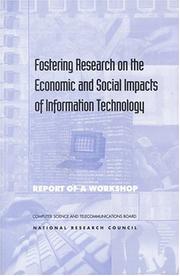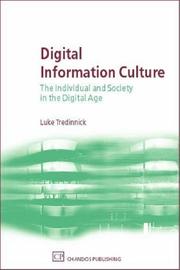| Listing 1 - 10 of 24 | << page >> |
Sort by
|

ISBN: 1281943983 9786611943981 0191528919 9780191528910 019924815X 9780199248155 9780191602955 0191602957 Year: 2001 Publisher: New York Oxford University Press
Abstract | Keywords | Export | Availability | Bookmark
 Loading...
Loading...Choose an application
- Reference Manager
- EndNote
- RefWorks (Direct export to RefWorks)
Many post-communist countries in Central/Eastern Europe and the former Soviet Union are being encouraged and indeed pressured by Western countries to improve their treatment of ethnic and national minorities, and to adopt Western models of minority rights. But what are these Western models, and will they work in Eastern Europe? In the first half of this volume, Will Kymlicka describes a model of 'liberal pluralism' which has gradually emerged in most Westerndemocracies, and discusses what would be involved in adopting it in Eastern Europe. This is followed by 15 commentaries from people actively involved in minority rights issues in the region, as practitioners or academics, and by Kymlicka's reply. This volume will be ofinterest to anyone concerned with ethnic conflict in Eastern Europe, and with the more general question of whether Western liberal values can or should be promoted in the rest of the world.

ISBN: 030906032X 0309521750 058502099X 9780585020990 9780309060325 030506032X 0309173736 Year: 1998 Publisher: Washington, D.C. National Academy Press
Abstract | Keywords | Export | Availability | Bookmark
 Loading...
Loading...Choose an application
- Reference Manager
- EndNote
- RefWorks (Direct export to RefWorks)
Information technology - Social aspects - Congresses. --- Information technology --- Business & Economics --- Economic History --- Congresses --- Social aspects --- IT (Information technology) --- Technology --- Telematics --- Information superhighway --- Knowledge management --- United States

ISBN: 0521568692 0511011296 0511489838 0521560330 051117327X 128041703X 0511152302 9786610417032 0511053436 0511327439 1107113067 9780511489839 9780511011290 9780511152306 9780521560337 9780521568692 9780511173271 9780511053436 9781280417030 6610417032 9781107113060 9780511327438 Year: 2000 Publisher: Cambridge, U.K. New York Cambridge University Press
Abstract | Keywords | Export | Availability | Bookmark
 Loading...
Loading...Choose an application
- Reference Manager
- EndNote
- RefWorks (Direct export to RefWorks)
Despite the extraordinary advances in digital and communication technology over recent years, we know very little about the way these complex systems affect everyday work and interaction. This book seeks to explore these issues through a series of video-based field studies. It begins by discussing the introduction of basic information systems in general medical practice and ends with an exploration of interpersonal communication in advanced media spaces; in the process also looking at news production, the control room of London Underground and computer aided design in architectural practice. Social interaction forms a particular focus of these studies as they explore the way individuals use various tools and technologies and coordinate their actions and activities with each other. The authors also show how video-based field studies of work and interaction can inform the design, development and deployment of new technology, in this valuable new resource for academics, researchers and practitioners.
Information technology - Social aspects. --- Technology. --- Technology - General --- Engineering & Applied Sciences --- Information technology --- Technology --- Social aspects. --- Health Sciences --- Psychiatry & Psychology --- Technologie de l'information --- Aspect social.

ISBN: 1780631677 1843341700 1843341603 9781780631677 9781843341604 9781843341703 Year: 2008 Publisher: Oxford, England : Chandos Publishing,
Abstract | Keywords | Export | Availability | Bookmark
 Loading...
Loading...Choose an application
- Reference Manager
- EndNote
- RefWorks (Direct export to RefWorks)
Digital Information Culture is an introduction to the cultural, social and political impact of digital information and digital resources. The book is organised around themes, rather than theories and is arranged into three sections: culture, society and the individual. Each explores key elements of the social, cultural and political impact of digital information. The culture section outlines the origins of cyber culture in fifties pulp-fiction through to the modern day. It explores the issues of information overload, the threat of a digital dark age, and the criminal underbelly of digital cult
Information technology --- Information society. --- Computers and civilization. --- Social aspects. --- Civilization and computers --- Civilization --- Sociology --- Information superhighway --- Information society --- Computers and civilization --- Social aspects --- Information technology - Social aspects
Book
ISBN: 152921534X 1529215315 1529215323 1529215331 9781529215311 9781529215328 9781529215335 Year: 2021 Publisher: Bristol Bristol University Press
Abstract | Keywords | Export | Availability | Bookmark
 Loading...
Loading...Choose an application
- Reference Manager
- EndNote
- RefWorks (Direct export to RefWorks)
This book is a timely analysis of the growing impact of digital technologies on populism in the US and beyond. Scott Timcke uses Marxist analysis to explore the way digital devices, social networks, data and algorithms, and the technology giants that lie behind them, are changing the way people think about politics and society.
Information technology --- Algorithms --- Social aspects --- History --- Political aspects. --- Social aspects. --- Algorism --- Algebra --- Arithmetic --- IT (Information technology) --- Technology --- Telematics --- Information superhighway --- Knowledge management --- Foundations --- Information technology - Social aspects - United States --- Information technology - Social aspects --- Information technology - History - 21st century --- Algorithms - Political aspects --- Algorithms - Social aspects --- Social media --- Populism --- Economic sociology --- Political systems --- Artificial intelligence. Robotics. Simulation. Graphics --- United States of America
Book
ISBN: 9089643109 9786613050557 9048514096 1283050552 9789048514090 9789089643100 Year: 2011 Publisher: Amsterdam Amsterdam University Press
Abstract | Keywords | Export | Availability | Bookmark
 Loading...
Loading...Choose an application
- Reference Manager
- EndNote
- RefWorks (Direct export to RefWorks)
Dit boek bevat een negental essays over de toenemende digitalisering bij de overheid en de invloed daarvan op de overheid/burger-relatie. De positieve ontwikkelingen, maar ook de zwakke plekken worden blootgelegd en mogelijke verbeterpunten worden beschreven. De essays leveren een belangrijke bijdrage aan het project van de Wetenschappelijke Raad voor het Regeringsbeleid (WRR) die het effect van de toenemende digitalisering bij de overheid heeft onderzocht en dat als resultaat het WRR-rapport opleverde. Dit boek is interessant voor IT-managers en projectleiders die werkzaam zijn bij de overhei
Goverment links. --- Information society. --- Information technology -- Social aspects. --- Management --- Business & Economics --- Management Theory --- Knowledge management. --- Information technology --- Moral and ethical aspects. --- Information ethics --- Management of knowledge assets --- Intellectual capital --- Organizational learning --- public administration --- bestuurskunde --- political science --- politicologie

ISBN: 0833036068 0833034189 9780833036063 9780833034182 Year: 2003 Publisher: Santa Monica, CA National Defense Research Institute, RAND
Abstract | Keywords | Export | Availability | Bookmark
 Loading...
Loading...Choose an application
- Reference Manager
- EndNote
- RefWorks (Direct export to RefWorks)
This report discusses the information revolution in the Asia-Pacific region and its likely course over the next five to ten years. Key questions addressed in this report include the extent to which the information revolution has taken hold of markets in this region, the political implications of the information revolution for Asian governments, the variations between individual countries, and the prospects for further information-technology-related developments in the region.
Information society--Asia. --- Information technology--Asia. --- Information technology--Social aspects--Asia. --- Social Conditions --- Sociology & Social History --- Social Sciences --- Information technology --- Information society --- Social aspects --- IT (Information technology) --- Sociology --- Information superhighway --- Technology --- Telematics --- Knowledge management
Book
ISBN: 9780231175265 9780231175272 9780231544375 0231544375 0231175264 0231175272 Year: 2017 Publisher: New York, NY
Abstract | Keywords | Export | Availability | Bookmark
 Loading...
Loading...Choose an application
- Reference Manager
- EndNote
- RefWorks (Direct export to RefWorks)
The great ideological cliché of our time, César Rendueles argues in Sociophobia, is the idea that communication technologies can support positive social dynamics and improve economic and political conditions. We would like to believe that the Internet has given us the tools to overcome modernity's practical dilemmas and bring us into closer relation, but recent events show how technology has in fact driven us farther apart.Named one of the ten best books of the year by Babelia El País, Sociophobia looks at the root causes of neoliberal utopia's modern collapse. It begins by questioning the cyber-fetishist dogma that lulls us into thinking our passive relationship with technology plays a positive role in resolving longstanding differences. Rendueles claims that the World Wide Web has produced a diminished rather than augmented social reality. In other words, it has lowered our expectations with respect to political interventions and personal relations. In an effort to correct this trend, Rendueles embarks on an ambitious reassessment of our antagonistic political traditions to prove that post-capitalism is not only a feasible, intimate, and friendly system to strive for but also essential for moving past consumerism and political malaise.
Internet --- Information technology --- Mass media --- Political aspects --- Social aspects --- Communication in politics --- Political aspects. --- Social aspects. --- Mass media Political aspects --- Internet - Political aspects --- Information technology - Social aspects --- Mass media - Political aspects
Book
ISBN: 0739137263 9786613056801 073913728X 1283056801 9780739137284 9781283056809 9780739137260 6613056804 Year: 2011 Publisher: Lanham, Md. Lexington Books
Abstract | Keywords | Export | Availability | Bookmark
 Loading...
Loading...Choose an application
- Reference Manager
- EndNote
- RefWorks (Direct export to RefWorks)
In Labor, Class Formation, and China's Informationized Policy of Economic Development, Yu Hong examines crucial connections between the evolving political economy of information and communications technology (ICT) and the reconstitution of class relations in China. Situating China's ICT development over the last thirty years at the intersection of transnational trends, domestic policies, and institutional arrangements, Hong shows how evolving class relations in the ICT sector are shaped by and shaping the transnational capitalist dynamics and domestic socio-economic transformations.
Division of labor - China. --- Division of labor -- China. --- Information technology - Social aspects - China. --- Information technology -- Social aspects -- China. --- Social classes - China. --- Social classes -- China. --- Social classes --- Division of labor --- Information technology --- Sociology & Social History --- Social Conditions --- Social Sciences --- Social aspects --- IT (Information technology) --- Labor, Division of --- Technology --- Telematics --- Information superhighway --- Knowledge management --- Labor --- Economic specialization --- E-books --- Classes sociales --- Division du travail --- Technologie de l'information --- Aspect social
Book
ISBN: 9780674504578 0674504577 Year: 2015 Publisher: Cambridge, Massachusetts Harvard University Press
Abstract | Keywords | Export | Availability | Bookmark
 Loading...
Loading...Choose an application
- Reference Manager
- EndNote
- RefWorks (Direct export to RefWorks)
"Social media compile data on users, retailers mine information on consumers, Internet giants create dossiers of who we know and what we do, and intelligence agencies collect all this plus billions of communications daily. Exploiting our boundless desire to access everything all the time, digital technology is breaking down whatever boundaries still exist between the state, the market, and the private realm. Exposed offers a powerful critique of our new virtual transparence, revealing just how unfree we are becoming and how little we seem to care. Bernard Harcourt guides us through our new digital landscape, one that makes it so easy for others to monitor, profile, and shape our every desire. We are building what he calls the expository society--a platform for unprecedented levels of exhibition, watching, and influence that is reconfiguring our political relations and reshaping our notions of what it means to be an individual. We are not scandalized by this. To the contrary: we crave exposure and knowingly surrender our privacy and anonymity in order to tap into social networks and consumer convenience--or we give in ambivalently, despite our reservations. But we have arrived at a moment of reckoning. If we do not wish to be trapped in a steel mesh of wireless digits, we have a responsibility to do whatever we can to resist. Disobedience to a regime that relies on massive data mining can take many forms, from aggressively encrypting personal information to leaking government secrets, but all will require conviction and courage."--Publisher's description.
Human rights --- Computer. Automation --- cultuurfilosofie --- mediatheorie --- mediakunde --- bewaking --- satelliettechnologie --- surveillance --- Big Brother --- activisme --- sociale media --- informatiewetenschap --- informatiedesign --- 130.2 --- filosofie --- sociologie --- politiek --- media --- Information technology --- Privacy, Right of. --- Technologie de l'information --- Droit à la vie privée --- Social aspects. --- Aspect social --- Privacy, Right of --- Social aspects --- Information technology - Social aspects
| Listing 1 - 10 of 24 | << page >> |
Sort by
|

 Search
Search Feedback
Feedback About UniCat
About UniCat  Help
Help News
News